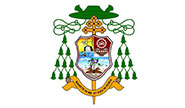Child Protection Programme
The Child Protection Programme supports street connected girls to successfully embark on a life away from the streets, where their rights are fully realized.
The Programme rescues 70 street connected girls, aged 5 to 16 years, each year and offers them family-based and residential rehabilitation for a period of 3-6 months before reintegrating them with care givers (kinship guardians or foster carers). The programme works with the 4R Approach, i.e. Rescue, Rehabilitation, Reintegration and Resocialisation one of the best practices for working with street connected children. It addresses the girls immediate (protection from abuse, access to shelter, food, health care, psychosocial support) as well as long term needs (family environment, education, life skills,vocational training) and offers psychosocial support to identified needy caregivers. Following successful rehabilitation, the girls are reintegrated with caregivers, and the progress in the family is being followed up for a minimum of two more years.
Activities under Child Protection Progamme

1. RESCUE
Rescue refers to the identification and recruitment of girls in street situations and those in the community at risk of ending up on the streets as a way of survival. It encompasses building rapport and all the life-saving activities in the streets and community. Once the girl has decided to be admitted to our Centre it will enter into the residential rehabilitation process:
2. REHABILITATION
Rehabilitation refers to all the interventions aimed at behavior change, restoring the girl to her childhood and reinstalling attachment between the girl and the caregivers. It includes: provision of remedial education; medical care; nutritional support; as well as talent identification and nurturing. It also includes psychosocial support, as well as sexual violence prevention training; in addition family tracing and mediation form part of the interventions. During this process it is crucial to include empowerment support activities to identified future caregivers (kinship guardians or foster carers) to improve their livelihood security before reintegration.


3. REINTEGRATION
Reintegration involves the (re)unification of the girl(s) with the identified caregiver and community, a key step in the process towards resocialization. We promote reintegration of the girls within the family and in the community as a sustainable measure of support where the girl receives the necessary care and protection to grow and develop. Strategies applied here include: family mediation, provision of back to school and home support packages including linkages to community support structures like the school, church, health center and community resource persons.
4. RESOCIALISATION
Resocialization is designed as two fold gradual and supervised/accompanied process for RDC, (1) supporting the girl to readjust to the family and community environment and rebuilding her social role in the same and (2) creating a supportive environment for the girl to guarantee her sustainable inclusion. Therefore, we monitor the girl’s and family’s ability to cope with the new situation at home, in school and the community through regular follow ups and support measures that take into account the girls and caregivers immediate and long-term needs in the process of becoming independent of RDC support.

SPONSORSHIP
The RDC Sponsorship Programme facilitates girls, who have undergone RDC rehabilitation and whose families are not in a position to pay for the same, access to secondary school or vocational training in order to realize their educational potential and/or ensure they are able to secure their livelihood.To strengthen the successful completion of the education we further organize study skills and carrier guidance workshops for the girls during school holidays and invite RDC Alumni to hold motivational talks. Caregivers of sponsored girls are invited for training to ensure they have the necessary skills to support their children to complete education and take over the shared responsibilities between school, caregiver and girl.







